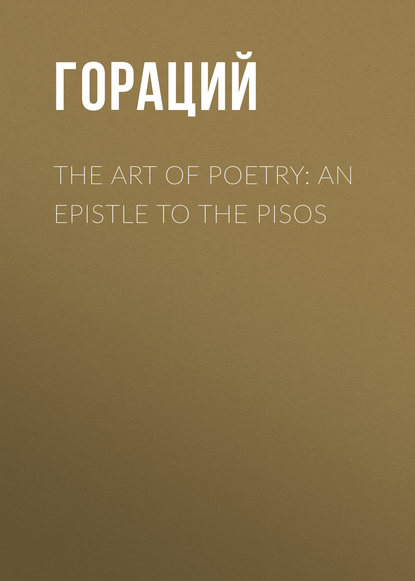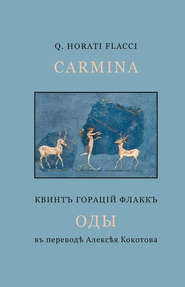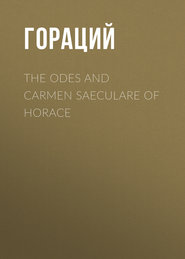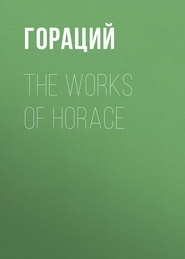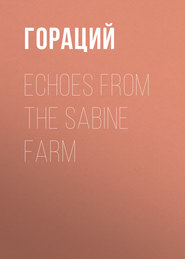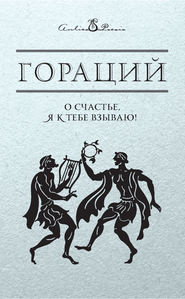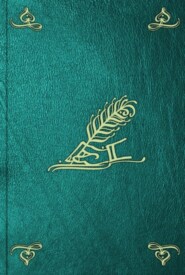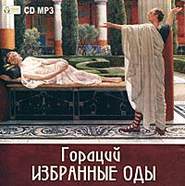По всем вопросам обращайтесь на: info@litportal.ru
(©) 2003-2024.
✖
The Art of Poetry: an Epistle to the Pisos
Настройки чтения
Размер шрифта
Высота строк
Поля
May vainly toil, and only dare to fail!
Such virtues order and connection bring,
From common arguments such honours spring.
The woodland Fauns their origin should heed,
Take no town stamp, nor seem the city breed:
Nor let them, aping young gallants, repeat
Verses that run upon too tender feet;
Nor fall into a low, indecent stile,
Breaking dull jests to make the vulgar smile!
For higher ranks such ribaldry despise,
Condemn the Poet, and withhold the prize.
Syllaba longa brevi subjecta, vocatur Iambus,
Pes citus: unde etiam Trimetris accrescere jussit
Nomen Iambeis, cum senos redderet ictus
Primus ad extremum similis sibi; non ita pridem,
Tardior ut paulo graviorque veniret ad aures,
Spondeos stabiles in jura paterna recepit
Commodus et patiens: non ut de sede secundâ
Cederet, aut quartâ socialiter. Hic et in Accî
Nobilibus Trimetris apparet rarus, et Ennî.
In scenam missus cum magno pondere versus,
Aut operae celeris nimium curaque carentis,
Aut ignoratae premit artis crimine turpi.
Non quivis videt immodulata poëmata judex:
Et data Romanis venia est indigna poetis.
To a short Syllable a long subjoin'd
Forms an Iambick foot; so light a kind,
That when six pure Iambicks roll'd along,
So nimbly mov'd, so trippingly the song,
The feet to half their number lost their claim,
And Trimeter Iambicks was their name.
Hence, that the measure might more grave appear,
And with a slower march approach the ear,
From the fourth foot, and second, not displac'd,
The steady spondee kindly it embrac'd;
Then in firm union socially unites,
Admitting the ally to equal rights.
Accius, and Ennius lines, thus duly wrought,
In their bold Trimeters but rarely sought:
Yet scenes o'erloaded with a verse of lead,
A mass of heavy numbers on their head,
Speak careless haste, neglect in ev'ry part.
Or shameful ignorance of the Poet's art.
"Not ev'ry Critick spies a faulty strain,
And pardon Roman Poets should disdain."
Idcircòne vager, scribamque licenter? ut omnes
Visuros peccata putem mea; tutus et intra
Spem veniae cautus? vitavi denique culpam,
Non laudem merui.
Vos exemplaria Graeca
Nocturnâ versate manu, versate diurnâ.
At vestri proavi Plautinos et numeros, et
Laudavere sales; nimium patienter utrumque
(Ne dicam stultè) mirati: si modo ego et vos
Scimus inurbanum lepido seponere dicto,
Legitimumque sonum digitis callemus et aure.
Ignotum tragicae genus invenisse Camenae
Dicitur, et plaustris vexisse poëmata Thespis
Quae canerent agerentque, peruncti faecibus ora.
Shall I then all regard, all labour slight,
Break loose at once, and all at random write?
Or shall I fear that all my faults descry,
Viewing my errors with an Eagle eye,
And thence correctness make my only aim,
Pleas'd to be safe, and sure of 'scaping blame?
Thus I from faults indeed may guard my lays;
But neither they, nor I, can merit praise.
Pisos! be Graecian models your delight!
Night and day read them, read them day and night!
"Well! but our fathers Plautus lov'd to praise,
Admir'd his humour, and approv'd his lays."
Yes; they saw both with a too partial eye,
Fond e'en to folly sure, if you and I
Know ribaldry from humour, chaste and terse,
Or can but scan, and have an ear for verse.
A kind of Tragick Ode unknown before,
Thespis, 'tis said, invented first; and bore
Cart-loads of verse about, and with him went
A troop begrim'd, to sing and represent,
Post hunc personae pallaeque repertor honestae
Aeschylus et modicis instravit pulpita tignis,
Et docuit magnumque loqui, nitique cothurno.
Successit Vetus his Comoedia, non sine multâ
Laude: sed in vitium libertas excidit, et vim
Dignam lege regi: lex est accepta; Chorusque
Turpiter obticuit, sublato jure nocendi.
Nil intentatum nostri liquere poëtae:
Nec nimium meruere decus, vestigia Graeca
Ausi deserere, et celebrare domestica facta,
Vel qui Praetextas, vel qui docuere Togatas:
Nec virtute foret clarisve potentius armis,
Quam linguâ, Latium; si non offenderet unum—
Next, Aeschylus, a Mask to shroud the face,
Such virtues order and connection bring,
From common arguments such honours spring.
The woodland Fauns their origin should heed,
Take no town stamp, nor seem the city breed:
Nor let them, aping young gallants, repeat
Verses that run upon too tender feet;
Nor fall into a low, indecent stile,
Breaking dull jests to make the vulgar smile!
For higher ranks such ribaldry despise,
Condemn the Poet, and withhold the prize.
Syllaba longa brevi subjecta, vocatur Iambus,
Pes citus: unde etiam Trimetris accrescere jussit
Nomen Iambeis, cum senos redderet ictus
Primus ad extremum similis sibi; non ita pridem,
Tardior ut paulo graviorque veniret ad aures,
Spondeos stabiles in jura paterna recepit
Commodus et patiens: non ut de sede secundâ
Cederet, aut quartâ socialiter. Hic et in Accî
Nobilibus Trimetris apparet rarus, et Ennî.
In scenam missus cum magno pondere versus,
Aut operae celeris nimium curaque carentis,
Aut ignoratae premit artis crimine turpi.
Non quivis videt immodulata poëmata judex:
Et data Romanis venia est indigna poetis.
To a short Syllable a long subjoin'd
Forms an Iambick foot; so light a kind,
That when six pure Iambicks roll'd along,
So nimbly mov'd, so trippingly the song,
The feet to half their number lost their claim,
And Trimeter Iambicks was their name.
Hence, that the measure might more grave appear,
And with a slower march approach the ear,
From the fourth foot, and second, not displac'd,
The steady spondee kindly it embrac'd;
Then in firm union socially unites,
Admitting the ally to equal rights.
Accius, and Ennius lines, thus duly wrought,
In their bold Trimeters but rarely sought:
Yet scenes o'erloaded with a verse of lead,
A mass of heavy numbers on their head,
Speak careless haste, neglect in ev'ry part.
Or shameful ignorance of the Poet's art.
"Not ev'ry Critick spies a faulty strain,
And pardon Roman Poets should disdain."
Idcircòne vager, scribamque licenter? ut omnes
Visuros peccata putem mea; tutus et intra
Spem veniae cautus? vitavi denique culpam,
Non laudem merui.
Vos exemplaria Graeca
Nocturnâ versate manu, versate diurnâ.
At vestri proavi Plautinos et numeros, et
Laudavere sales; nimium patienter utrumque
(Ne dicam stultè) mirati: si modo ego et vos
Scimus inurbanum lepido seponere dicto,
Legitimumque sonum digitis callemus et aure.
Ignotum tragicae genus invenisse Camenae
Dicitur, et plaustris vexisse poëmata Thespis
Quae canerent agerentque, peruncti faecibus ora.
Shall I then all regard, all labour slight,
Break loose at once, and all at random write?
Or shall I fear that all my faults descry,
Viewing my errors with an Eagle eye,
And thence correctness make my only aim,
Pleas'd to be safe, and sure of 'scaping blame?
Thus I from faults indeed may guard my lays;
But neither they, nor I, can merit praise.
Pisos! be Graecian models your delight!
Night and day read them, read them day and night!
"Well! but our fathers Plautus lov'd to praise,
Admir'd his humour, and approv'd his lays."
Yes; they saw both with a too partial eye,
Fond e'en to folly sure, if you and I
Know ribaldry from humour, chaste and terse,
Or can but scan, and have an ear for verse.
A kind of Tragick Ode unknown before,
Thespis, 'tis said, invented first; and bore
Cart-loads of verse about, and with him went
A troop begrim'd, to sing and represent,
Post hunc personae pallaeque repertor honestae
Aeschylus et modicis instravit pulpita tignis,
Et docuit magnumque loqui, nitique cothurno.
Successit Vetus his Comoedia, non sine multâ
Laude: sed in vitium libertas excidit, et vim
Dignam lege regi: lex est accepta; Chorusque
Turpiter obticuit, sublato jure nocendi.
Nil intentatum nostri liquere poëtae:
Nec nimium meruere decus, vestigia Graeca
Ausi deserere, et celebrare domestica facta,
Vel qui Praetextas, vel qui docuere Togatas:
Nec virtute foret clarisve potentius armis,
Quam linguâ, Latium; si non offenderet unum—
Next, Aeschylus, a Mask to shroud the face,
Другие электронные книги автора Квинт Гораций Флакк
Другие аудиокниги автора Квинт Гораций Флакк
Избранные оды




 4.67
4.67





